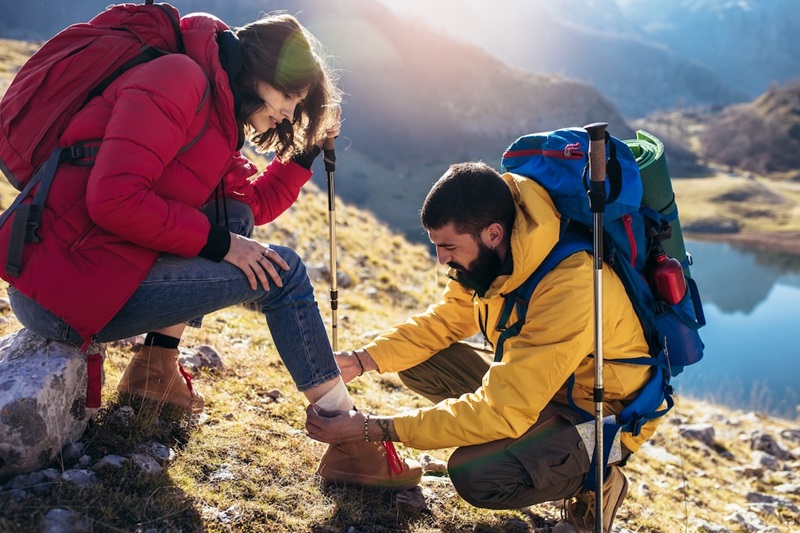A Guide to Handling Personal Injury Claims While Traveling

Immediate Actions After an Injury
When injured on vacation, taking immediate action is crucial. First, seek medical attention, regardless of the injury’s severity. A medical professional can provide a thorough evaluation and document your injuries, which is vital for any future claims. Second, document the incident and your injuries as comprehensively as possible.
Take photographs of the accident scene, your injuries, and anything else that might be relevant, such as hazardous conditions that contributed to the incident. Collect names and contact information of any witnesses and make notes about what happened while the details are fresh in your mind. This information can be invaluable in building a strong personal injury claim.
Understanding the steps to take right after an injury ensures that your health is prioritized and your right to compensation is protected. Remember, documentation can make a significant difference in the outcome of your claim. Detailed records and evidence strengthen your case, making it easier to navigate the legal process.
Understanding Local Laws
Understanding local laws and regulations is essential when filing a personal injury claim in a place where you were vacationing. Different locations have different laws regarding personal injury cases, including the statute of limitations (the deadline by which you must file a claim) and specific requirements for filing a claim.
Knowing these local laws can significantly impact the success of your case, as failure to comply can result in losing your right to seek compensation. This is why it’s important to familiarize yourself with the local legal landscape or consult with a legal professional who can guide you through the process.
Documenting Your Claim
To support a personal injury claim, you will need:
- Medical Reports: Documentation from every medical professional you visit regarding your injuries.
- Photographs: Pictures of your injuries, the accident scene, and anything else pertinent to your case.
- Witness Contact Information: Names and ways to contact anyone who witnessed the incident.
- Incident Reports: Any reports filed with local authorities or the facility where the injury occurred.
Seeking Legal Assistance
Consulting with a legal professional experienced in personal injury cases is crucial, especially when injured while traveling. A qualified attorney can navigate the complexities of filing a claim in a location unfamiliar to you, dealing with local laws and regulations that might affect your case. Felice Trial Attorneys specialize in assisting travelers who have suffered injuries. They understand the nuances of personal injury claims and can guide you through the process, ensuring your rights are protected and you receive the compensation you deserve.
Felice Trial Attorneys offer expertise in handling a wide range of personal injury cases for travelers. Their knowledge and experience can be instrumental in managing the complexities of your claim, from gathering necessary documentation to negotiating with insurance companies. With their support, you can focus on recovery, knowing your case is in capable hands.
Navigating Insurance Claims
When dealing with insurance companies after a personal injury on vacation, it’s crucial to communicate effectively while safeguarding your interests. Initially, notify both your travel and health insurance providers about the incident as soon as possible, adhering to their policies for filing a claim. Provide them with a comprehensive account of the accident and the injuries sustained. However, be cautious about sharing detailed personal opinions or making admissions that could be used to minimize your claim. Documentation is key; submit all required evidence, such as medical reports and incident documentation, to support your claim. Consider consulting with a legal expert to navigate this process smoothly, ensuring that you articulate your needs clearly without compromising your position.
Settlements and Compensation
Each of these compensation types considers various factors, including the severity of the injury, the length of recovery, and how the injury affects your daily life and earning capacity. Types of compensation you may be entitled to include:
- Medical Expenses: Covers costs for medical treatment, hospital stays, rehabilitation, and any future medical care related to the injury.
- Lost Income: Reimburses for wages lost due to time off work for recovery. Can also cover future lost earnings if the injury impacts your ability to work.
- Pain and Suffering: Compensates for physical pain and emotional distress caused by the injury. The severity of the injury and its long-term impact on your quality of life are significant factors.
Preparing for Legal Action
Preparing for potential legal action in a personal injury case requires meticulous planning and an understanding of the legal process. Begin by gathering all relevant evidence, including medical records, photos of the injury and accident scene, witness statements, and any communication with insurance companies. This evidence will form the backbone of your case. Understanding the claim process is also vital; familiarize yourself with the statute of limitations in the jurisdiction where the accident occurred, as missing these deadlines can forfeit your right to claim.
Felice Trial Attorneys play a crucial role in this preparation. Their expertise in personal injury law can guide you through the complexities of filing a claim, negotiating with insurance companies, and, if necessary, pursuing legal action. Their support ensures that you take timely and appropriate steps, enhancing your chances of receiving fair compensation. Trusting your case to Felice Trial Attorneys means you have a knowledgeable ally who can advocate for your rights and interests throughout the claim process.